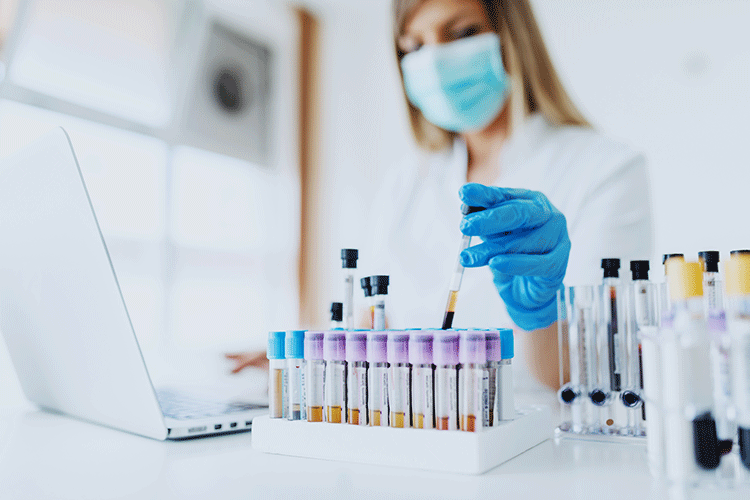Highly proteinous foods are necessary for the body’s development and repair. They supply the amino acids needed for a variety of purposes. Legumes, dairy products, and meat are typical sources.
Essential amino acids are abundant in protein sources derived from animals. Fish, meat, and chicken are a few examples. These meals also have healthy amounts of vitamins and minerals.
Nuts, legumes, and beans are sources of plant-based proteins. For vegan and vegetarian diets, they are essential. These sources also supply antioxidants and fiber.
Top 10 Highly Proteinous Foods You Should Consume
1. Chicken Breast:
Because it is low in fat and high in protein, chicken breast is a mainstay in many diets. Approximately 31 grams of protein are included in a 100-gram meal of chicken breast. It may be stir-fried, roasted, or grilled, making it quite flexible.
2. Eggs:
Among all the most comprehensive proteinous foods out there are eggs. Aside from being more affordable, there are around six grams of protein in one big egg. They are also a great source of selenium, vitamin D, and vitamin B12.
3. Salmon:
Salmon is Packed full of omega-3 fatty acids, which are good for heart health, skin health, salmon also has a high protein content (20 grams per 100 grams). Additionally, it has vitamins D and B12.
4. Greek Yogurt:
Having double the protein of ordinary yogurt, Greek yogurt is creamier and thicker. Approximately 10 grams of protein are included in a 200-gram meal. Additionally, it has a lot of probiotics, which promote digestive health.
5. Tuna:
With about 30 grams of protein per 100 grams, tuna is a lean protein source. In addition to its proteinaceous content, it has a lot of minerals and vitamins, including iodine, selenium, and vitamin D.
6. Lean Beef:
About 26 grams of protein are found in 100 grams of lean beef, such as tenderloin or sirloin. Iron, zinc, and vitamin B12 are among the vital elements it provides; these are necessary for the synthesis of red blood cells and energy.
7. Cottage Cheese:
Cottage cheese is a low-fat, high proteinous food made from fresh cheese curds. About 11 grams of protein are included in a 100-gram meal. It’s an excellent provider of phosphate and calcium as well.
8. Quinoa:
Quinoa is a special kind of grain that is a complete protein as it has all nine of the essential amino acids. About eight grams of protein are included in one cup of cooked quinoa. Iron, magnesium, and fiber are also abundant in it.
9. Lentils:
Legumes rich in fiber and protein are called lentils. There are around eighteen grams of protein in one cup of cooked lentils. They are also a good source of potassium, iron, and folate.
10. Almonds:
Almonds can’t be left out when listing top ten proteinous foods. With around 6 grams of protein per 28 grams (or roughly a handful), almonds are a high-protein nut. They are also high in fiber, magnesium, vitamin E, and good fats.

10 Benefits Of Consuming Highly Proteinous Foods
1. Muscle Growth and Repair:
Amino acids, the building blocks of muscle tissue, are provided by protein. Muscle fibers experience tension and deterioration both during and after exercise. Muscle protein synthesis is the mechanism by which eating protein aids in the development and repair of these muscle fibers. For bodybuilders and athletes, adequate protein intake—especially when combined with strength training—promotes muscular hypertrophy, or the growth of larger muscles.
2. Weight Management
Protein makes you feel fuller for extended periods of time since it has a high satiety factor. This can minimize the amount of calories consumed overall by reducing appetite and the chance of between-meal snacking. Preserving muscle mass is essential to avoid metabolic slowing after weight reduction. Diets high in protein promote fat reduction while preserving lean muscle.
3. Improved Metabolism
Protein needs more energy to digest, absorb, and metabolize than fats or carbs do. The term “thermic effect” refers to this rise in energy expenditure that occurs when food is consumed and can enhance total burning of calories.
4. Blood Sugar Regulation
Protein causes the breakdown and absorption of carbs to be slowed down, which causes the circulation to release glucose more gradually. This aids in preserving stable blood sugar levels, avoiding the spikes and crashes that can cause cravings and low levels of energy.
Diets high in protein can improve insulin sensitivity, which lowers the risk of type 2 diabetes and facilitates the body’s more effective utilization of glucose.
5. Improve Bone Health
Calcium and other elements needed for healthy bones may be absorbed more easily with the help of protein. A sufficient protein diet has been associated in studies with increased bone mineral density and a decreased risk of fractures. Collagen is a protein that gives bones their strength and shape. Getting adequate protein in your diet promotes the synthesis of collagen, which is essential for keeping your bones strong.
6. Enzymes And Hormone Production
Enzymes and hormones that control a range of biological processes, including growth, reproduction, and metabolism, are produced in part by proteins. One such protein is the hormone insulin, which controls blood sugar. Certain proteins function as building blocks for neurotransmitters like dopamine and serotonin, which are important for mental health and mood modulation.
7. Immune Function
Proteins are essential for the production of antibodies, which are proteins that recognize and kill foreign invaders like bacteria and viruses. To maintain a strong and effective immune system, protein is required for immune cell repair and regeneration.
8. Healthy Skin, Hair, and Nails
Keratin and Collagen are structural proteins that provide skin, hair, and nails strength and suppleness. Sufficient consumption of protein facilitates the synthesis of these proteins, which in turn promotes robust nails, glossy hair, and healthy, resilient skin. By promoting the growth and repair of new tissue, protein is essential to the wound-healing process.
9. Source of Energy
Protein is been utilized by the body to produce energy even if it is not its main energy source. This is particularly true during extended physical activity or when the body is running low on carbohydrates. A procedure known as gluconeogenesis is involved in this process, which breaks down amino acids.
10. Help for Healing and Recuperation
Another very important benefits of highly proteinous meals is the ability of healing wounds. Following surgery or injury, the body needs more protein to create new cells and repair damaged tissues. Protein also helps in inflammation Reduction. Protein contains certain amino acids that have anti-inflammatory qualities that can aid in reducing inflammation and promoting a quicker healing process.
Conclusion
Above all other nutrient, Highly proteinous food is crucial for preserving muscle mass, healing wounds, and promoting general bodily activities. To guarantee a well-rounded intake of vital amino acids and minerals, it’s crucial to include a range of sources, such as lean meats, fish, eggs, dairy, legumes, nuts, and seeds. Plant-animal protein balance has advantages for the environment and human health. A healthy diet revolves around moderation, sustainability, and adjusting protein intake to suit individual needs.



Pingback: Ways to Maintain Superfoods and Clean Eating Habits
Pingback: Top 10 Superfoods for Boosting Immunity: Nutrition Guide